The Varied Tit is a rare species in Shanghai – this was the first time I ever saw one, even though it is relatively common further North in China. Shanghaibirding reports that the species was seen in Shanghai in 2012, so it is not the first time but still a rare event for Shanghai birders.
I am afraid I neither know why it is called varied (also in the scientific species name, varius) nor why it does not winter in Shanghai more frequently – surely it must be warmer up here than in North Korea?
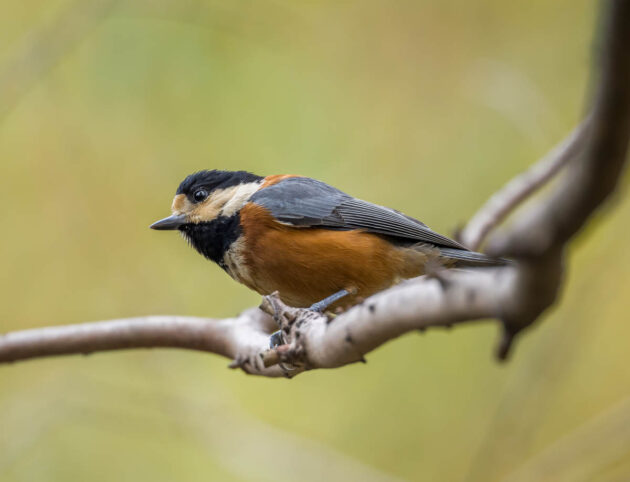
Similar to humans, they are “believed to pair for life” though the reality is a bit more complex: “study in China found that 40% of broods contained young resulting from extra-pair couplings” (HBW).
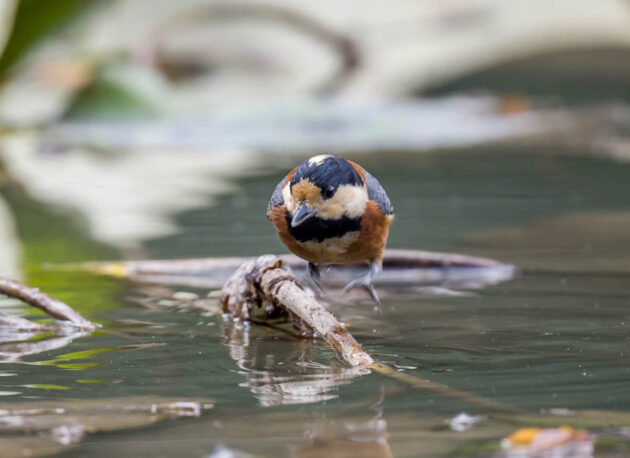
The female builds the nest and also provides more of the food to the nestlings – I guess the male mostly sits in a pub, drinks beer, and watches soccer, American football, or whichever sports is the most popular in places such as North Korea.

According to the HBW, the species is one of Japan’s three most popular cagebirds. It is traditionally used for fortune-telling – the bird draws a fortune-telling slip from a model Shinto shrine, and your prediction may well be that you will soon die of an avian-transmitted disease (here at 10,000 Birds, writers get paid by the number of jokes, not by their quality) … A slightly more detailed description of this tradition can be found here.
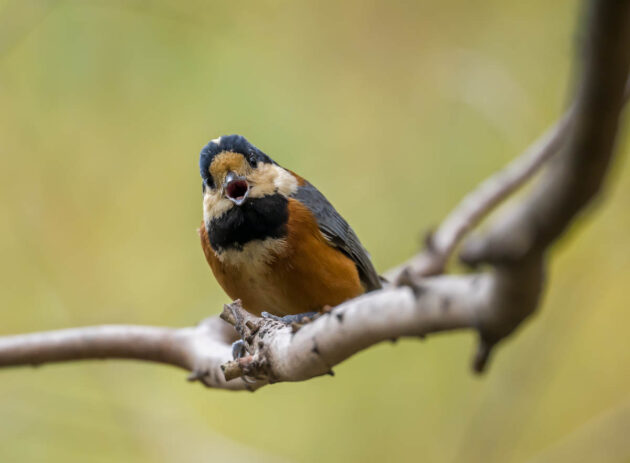
The Journal “Archives of Natural History” actually bemoans the decline of this fortune-telling: “Within the bird-keeping culture of Japan, the varied tit had a specific image, which was different from other birds. They were trained to perform tricks and were used in street performances from the Edo Era until the middle of the twentieth century when the tradition disappeared. The decline of the bird-keeping culture and the training of tricks may benefit the conservation of wild birds, but it also marks the loss of an ancient cultural tradition in Japan.” I say: ancient, schmancient – better to preserve wild birds than traditional culture.

In one case reported on in a scientific paper, a Great Tit chick was fed alongside 5 Varied Tit chicks by a pair of adult chicks and even got bigger portions. That is the kind of altruistic behavior we at 10,000 Birds appreciate. Of course, Donald Trump would have pulled out the Great Tit chick and killed it instantly. Or built a wall around it.
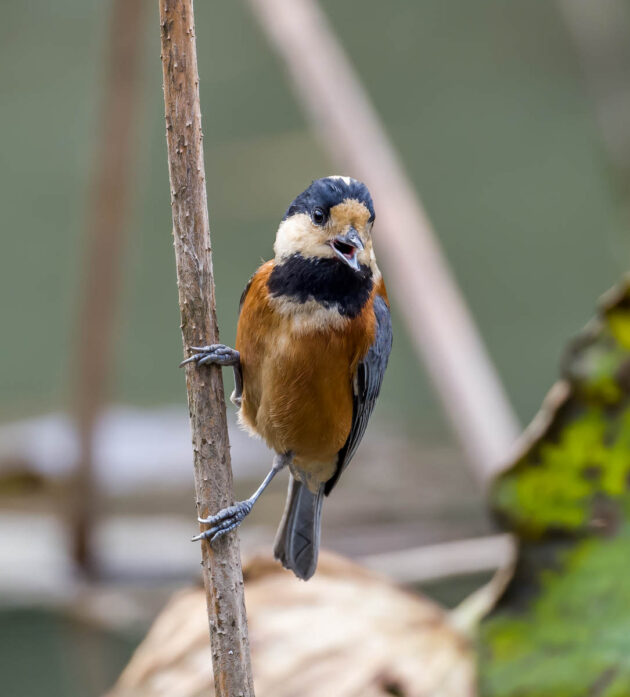
For some reason, male Varied Tits with a longer tarsus (which is ornithologist speaking for legs, essentially) have a higher proportion of sons among their chicks (source). Now I am aware that some men regard long legs as sexy among women (though that does not necessarily include me), but I did not know that this preference also applies to female Varied Tits (which presumably have some kind of control mechanism to increase the ratio of sons if the father is particularly attractive).

“Stating the obvious again” is not only a song by the American band X-tal but could also be a subtitle to a scientific paper on prey size and feeding frequency of Varied Tits. Specifically, if the prey gets smaller, the feeding frequency increases. What a surprise.
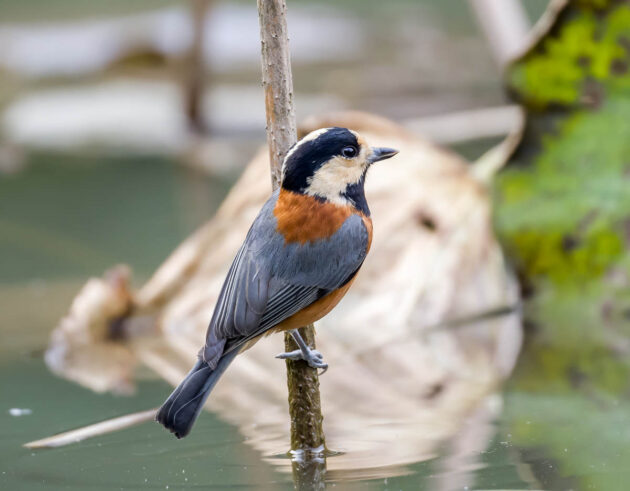
Varied Tits also have a habit of caching food. For example, they sometimes grab sunflower seeds from bird feeders in winter, take them away and store them for later consumption. This has two consequences – one is that nestlings get fed sunflower seeds the next spring. The other is that along trails where the birds nest, many sunflower seeds come out in spring, indicating that although the birds have some memory of the stored seeds, they also forget the location of some of them (source).
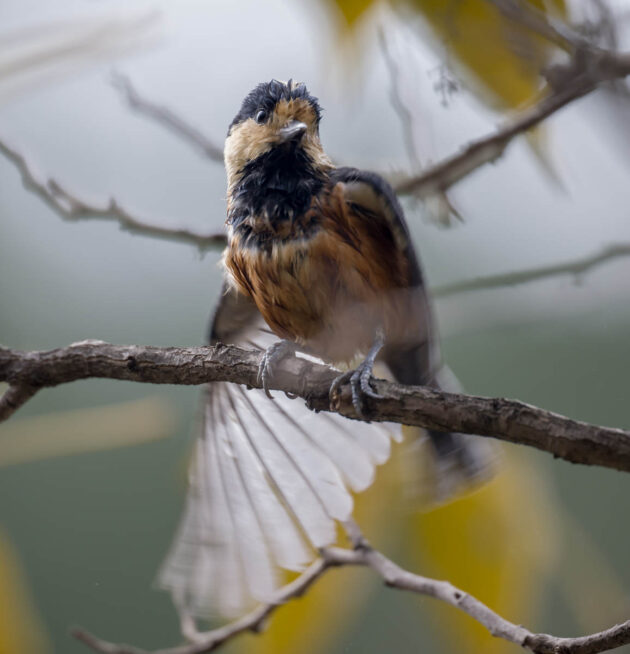
Source link
Facebook
Pinterest
Twitter
LinkedIn

